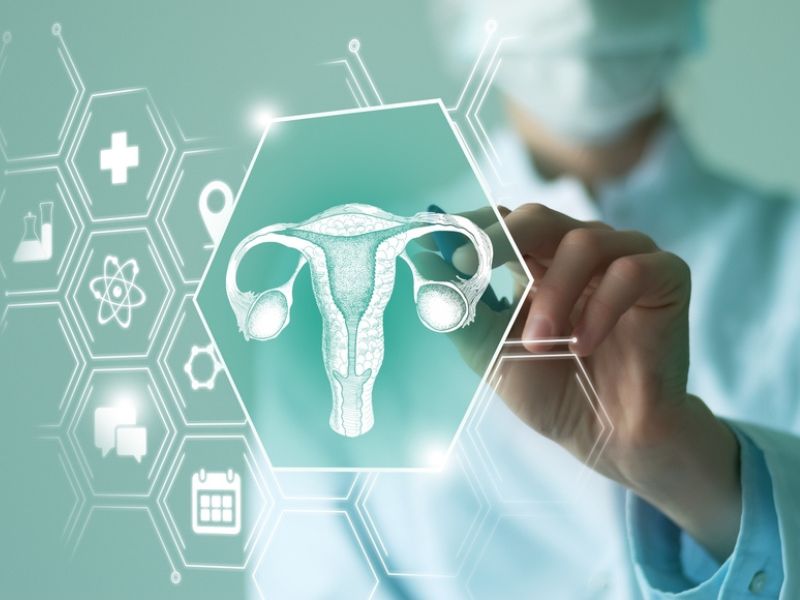Many women experience endometriosis and polycystic ovary syndrome (PCOS) as part of their reproductive health. While both conditions can cause similar symptoms, such as irregular periods, infertility, and pelvic pain, they are entirely different conditions that require other treatments.
Endometriosis is when tissue that usually lines the uterus grows outside the uterus, causing severe pain and discomfort. The symptoms of endometriosis can vary from woman to woman, but the most common include painful periods, painful sex, heavy menstrual bleeding, and infertility.

Image Credit: Shutterstock/Prostock-studio & Shutterstock/SewCreamStudio
On the other hand, PCOS is a hormonal disorder that affects a woman’s ovaries, causing an imbalance in estrogen, progesterone, and testosterone. PCOS causes enlarged ovaries with small cysts, leading to irregular periods, weight gain, acne, and excess hair growth.
Although both endometriosis and PCOS symptoms can be similar, some key differences can help differentiate the two conditions. For instance, while both conditions can cause infertility, endometriosis usually causes infertility due to the formation of scar tissue in the reproductive organs. In contrast, PCOS usually causes infertility due to a lack of ovulation.
Additionally, women with endometriosis often experience painful periods that start before and continue for several days after menstruation. In contrast, women with PCOS may experience irregular periods or no periods.

Image Credit: Shutterstock/mi_viri
Cysts are also common in PCOS but rare in endometriosis, which is another difference between the two conditions. Women with endometriosis may also experience pain during sex, while women with PCOS usually do not.
In conclusion, while both endometriosis and PCOS can cause similar symptoms, they are entirely different conditions that require other treatments. Therefore, if you suspect that you may have either of these conditions, it’s essential to consult a healthcare professional who can help you diagnose and treat your disease accordingly.